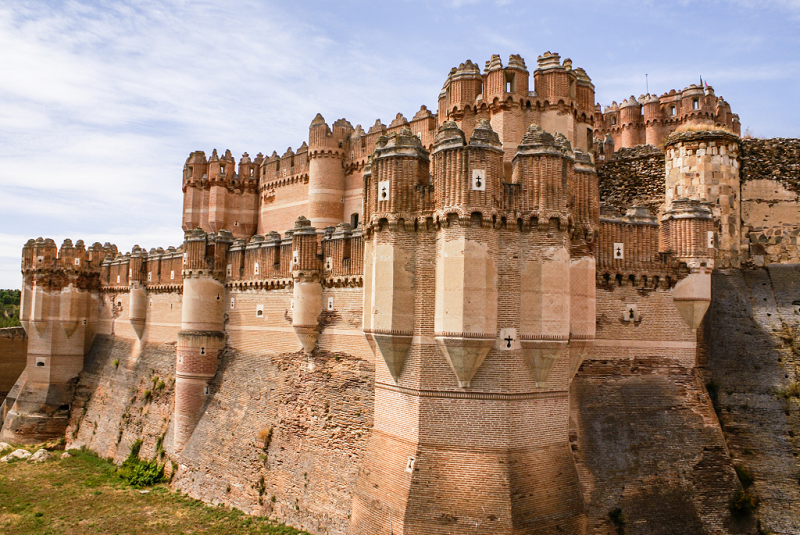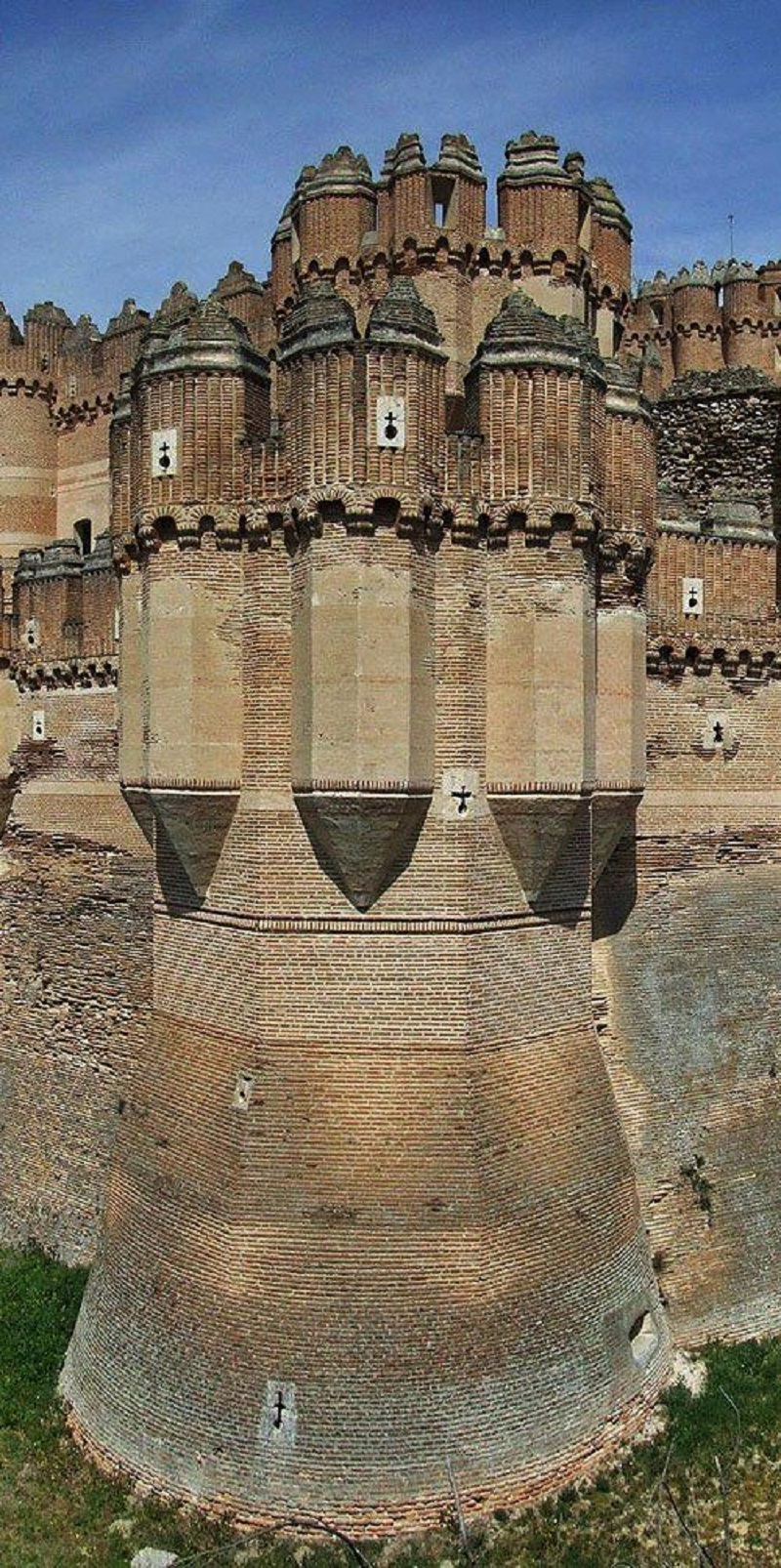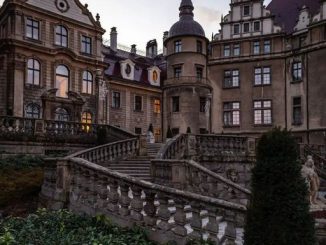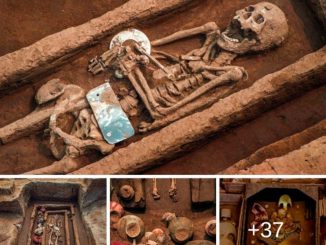Nestled in the picturesque municipality of Coca in central Spain stands the Castle of Coca, a majestic fortress that epitomizes the rich cultural heritage of the region. Constructed in the 15th century, this remarkable edifice is renowned for its exquisite Mudejar brickwork, which seamlessly blends Moorish Muslim design with Gothic architecture. Join us as we embark on a journey to uncover the history, beauty, and significance of the Castle of Coca, and delve into the enduring legacy of this architectural marvel.
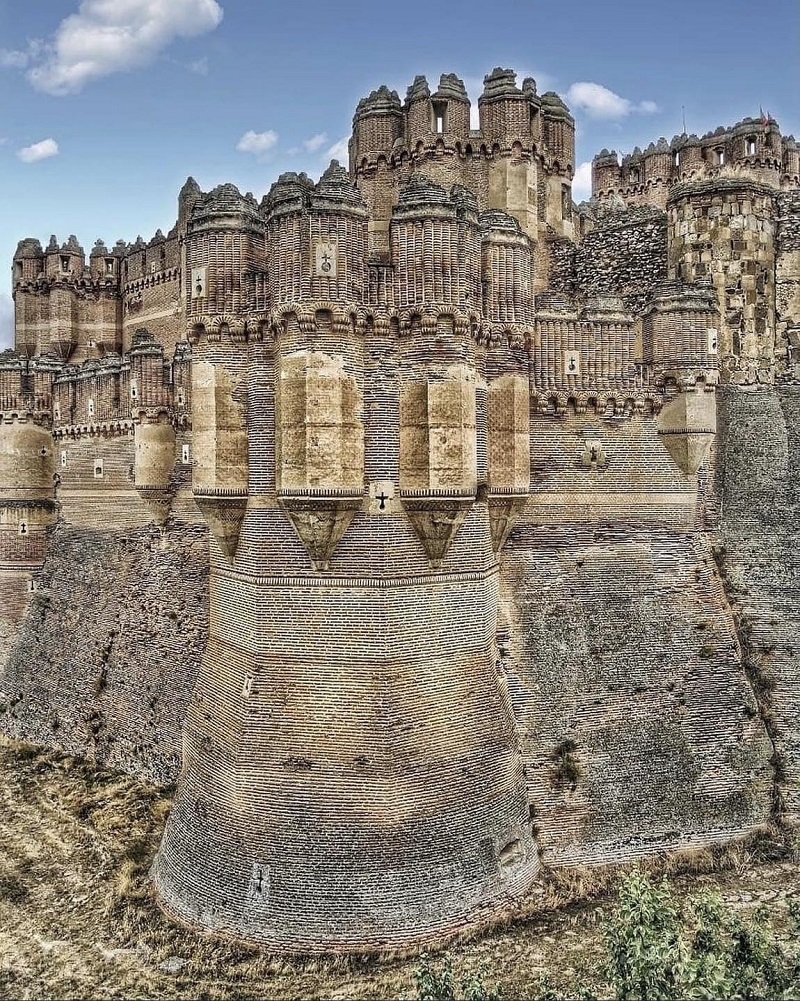
The History of the Castle of Coca: A Legacy of Power and Prestige
Built during the late Middle Ages, the Castle of Coca served as a symbol of wealth, power, and influence for its noble owners. Originally constructed as a fortress for defensive purposes, the castle later underwent extensive renovations and additions, transforming it into a lavish residence fit for royalty. Its strategic location, surrounded by lush countryside and fertile lands, made it an ideal stronghold for its owners, who sought to establish their dominance over the region.
The Splendor of Mudejar Brickwork: A Testament to Cultural Exchange
One of the most striking features of the Castle of Coca is its exquisite Mudejar brickwork, which reflects the fusion of Moorish Muslim craftsmanship with Gothic architectural elements. Characterized by intricate patterns, geometric designs, and ornate detailing, Mudejar brickwork is a hallmark of Spanish architecture during the late medieval period. The Castle of Coca showcases this unique architectural style in all its splendor, offering visitors a glimpse into the cultural exchange and artistic innovation that defined the era.
Exploring the Interior: A Journey Through Time
As visitors step inside the Castle of Coca, they are transported back in time to the days of its medieval glory. From the grand halls and opulent chambers to the fortified walls and towering battlements, every corner of the castle tells a story of wealth, power, and prestige. Guided tours offer an immersive experience, allowing guests to explore the castle’s rich history and architectural significance while marveling at its impressive craftsmanship and design.
Preserving the Past: The Importance of Heritage Conservation
As guardians of our cultural heritage, it is essential to safeguard treasures like the Castle of Coca for future generations. Through conservation efforts and archaeological research, we can ensure that these historic landmarks remain intact and accessible to all. By understanding and appreciating the significance of sites like the Castle of Coca, we gain a deeper appreciation for the diverse cultural influences that have shaped our world and the importance of preserving them for posterity.
In conclusion, the Castle of Coca stands as a testament to the enduring legacy of medieval Spain and the remarkable ingenuity of its architects and craftsmen. From its impressive Mudejar brickwork to its storied history and cultural significance, the castle continues to captivate visitors with its timeless beauty and grandeur. As we reflect on its rich heritage and the lessons it holds for us today, let us also consider the broader meaning and benefits of archaeology in preserving and interpreting our shared cultural heritage. Through our engagement with sites like the Castle of Coca, we gain a deeper understanding of the past and a renewed appreciation for the importance of protecting and celebrating our cultural treasures.
